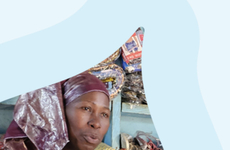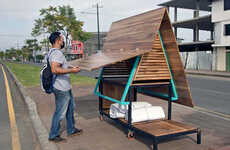
Living Goods Provides Affordable Necessities in Uganda
Elise Ying-Hei Ho — February 23, 2013 — Social Good
References: vimeo & livinggoods.org
Focussing in Uganda, the San Francisco-based social enterprise Living Goods provides high impact goods at a low cost that are sold door-to-door by its female entrepreneurs.
Adapting the Avon business model, the social enterprise offers training to the agents so that they can go door-to-door giving demonstrations of simple, effective, affordable and energy-efficient solutions to the people’s daily struggles such as clean water, food and electricity. Offering a wide spectrum of day-to-day necessities such as clean burning stoves, bed nets, soap, fortified foods, solar-powered appliances and medicine, Living Goods also harnesses the growing market of cellular devices in Africa to their advantage, providing an assortment of SMS treatment reminders, promotions and other services for its clients
Contact Information
Living Goods website
Living Goods Facebook
Living Goods Twitter
Living Goods Google+
Living Goods LinkedIn
Adapting the Avon business model, the social enterprise offers training to the agents so that they can go door-to-door giving demonstrations of simple, effective, affordable and energy-efficient solutions to the people’s daily struggles such as clean water, food and electricity. Offering a wide spectrum of day-to-day necessities such as clean burning stoves, bed nets, soap, fortified foods, solar-powered appliances and medicine, Living Goods also harnesses the growing market of cellular devices in Africa to their advantage, providing an assortment of SMS treatment reminders, promotions and other services for its clients
Contact Information
Living Goods website
Living Goods Facebook
Living Goods Twitter
Living Goods Google+
Living Goods LinkedIn
Trend Themes
1. Door-to-door Sales - There are opportunities for businesses to adopt the Avon business model and sell affordable products door-to-door in developing countries.
2. Micro-entrepreneurship - Creating opportunities for micro-entrepreneurs to sell affordable products in developing countries can benefit both the individuals and local communities.
3. SMS Services - Using SMS services to promote and remind clients of products and services can be a disruptive innovation in developing countries that lack traditional advertising channels.
Industry Implications
1. Social Enterprises - Social enterprises can leverage the door-to-door sales model to provide affordable products to underserved areas.
2. Consumer Goods - Developing affordable and energy-efficient consumer goods for low-income customers in developing countries presents a disruptive innovation opportunity.
3. Mobile Technology - Using mobile technology to provide SMS-based services for product promotion and reminders presents a disruptive innovation opportunity for businesses in developing countries.
1.9
Score
Popularity
Activity
Freshness















